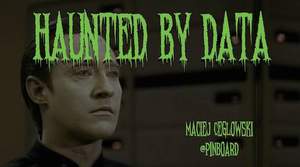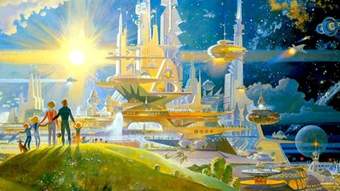I’m reading a book written by a spectacularly honest frenchman titled “How to talk about books you haven’t read”. In this book, among many other things, he says that a lot of authors refer to books they might have skimmed through or even not read at all. He uses a system within his own book that puts a certain tag next to each book he refers to, ranging from. He also uses a rating system from ++ to — to express his opinion on the particular book.
In detail, ++ is extremely positive opinion, + is positive opinion. – and — are negative and extremely negative opinions respectively. I think this system is perfect for sharing your disposition to something without having to use a 1-10 or 1-100 system. I hate it when people ask me to rate a girl, game, movie, or just about anything from 1 to 10. What’s a 1? Even more importantly, what’s a 10? Can you rate anything with a 10 without having any doubts about whether anything will surpass it, ever? Everything in life is experiences, including all the above, and experiences are rating-proof! By the way, before any of you say it: Yes, since the YRS (Yummers Rating System) is a 1-10 deal, I have concluded that it too is incomplete and needs revision.
I like the ++ to – – so much that I’ll use just it to describe what’s going on in my life at the moment by how much I like it!
++
Paradox Interactive. These guys are one of the best studio/publisher around. I’m seriously hooked with Europa Universalis III and Victoria. Hearts of Iron looks like a thing to check out soon (what am I saying, I already own two copies! I’m not going into detail with that, I want to forget…)
CouchSurfing. I just hosted an Italian guy, his name is Duan. 2 nights it was. I had almost forgot how nice and cozy hosting makes you feel, especially when it’s people you’d easily make friends with but will probably never appearin your life again.
SPACED!! After Hot Fuzz and Dawn of the Dead (I mean, um, a couple of years before those), comes Spaced. It’s awesome, pure awesome, and I recommend it to anyone who has a thing for cleverly stupid humour. Anger, Pain, Fear, Aggression…
Jose Saramago. This guy is quickly, and I mean quickly, becoming my favourite writer. Period. I couldn’t resist and gave ~100 euros to get 5 of his books together (along with the book I mentioned first and 1984). Which brings me to…
1984, by George Orwell. It shocked me. A masterpiece of 20th century literature. I may write something on it one day…
+
Soon I’ll be translating and subbing eco films, and not for free! I am excited for what may be my first paid job.
The Balkans, by Mark Mazower. An excellent read on the real side of “European Turkey”.
I’m entering a Guitar Hero contest. Yay?!
I’m learning Japanese… And want to learn Turkish. I want to communicate with the world! Is it normal that I’m only learning the languages of the… “bad guys” (plus german)?
We dressed up as vampires with Alex. It had been so long since I had done something like that…
In January we made a little cut-out animation for uni. It’s not completely ready yet so don’t expect to have a look if you haven’t already! 😛 It did turn out well though…
–
My money is running low much faster than would be desirable, even if we eat everyday at the Uni with Mario!
I still think I have no certain purpose or goals. That I’m not really good at anything but only mediocre in lots of things. Same applies to everything. Is this good or bad in the end?
Nationalistic idiots annoy me.
Pop songs that use Beethoven’s 9th also annoy me.
Waking up early to catch those pesky morning lectures is always a problem… So it is now!
No time for everyone that I would like to have more of in my life… You know who you are.
– –
Keeping my house clean is a nightmare.
Rain and cold. Cold and rain. And no central heating This pretty much sums up 2009’s weather up till now. And for the past week, it’s extreme rain and cold. Where’s summer? Where’s the sun?! I seriously don’t believe I’m uttering these words…
Every time it rains, my second room gets flooded. Argh! How can people be so stupid they mess up a balcony this much?
I hate the announcements in the ships. All of them. Lissos, Mytilini especially. I want to kick the (taped) announcers to death. Yes, that’s how much I hate them.
 In Other Worlds: SF and the Human Imagination by Margaret Atwood
In Other Worlds: SF and the Human Imagination by Margaret Atwood



